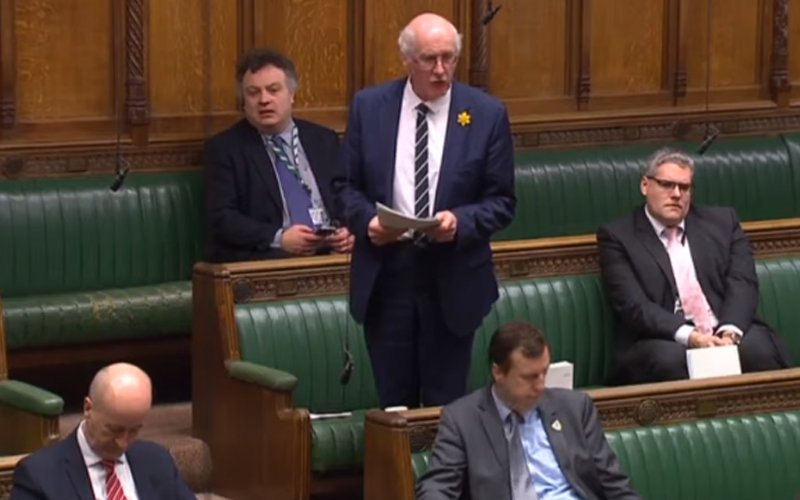Lacking legal bullets, Muhyiddin’s enemies eye diplomatic pressure instead

A former Islamic activist told FMT it was no secret that a strong network of UK-based image makers had been established over the last four decades to help Malaysian politicians.
(FMT) – The “constitutional” way in which Muhyiddin Yassin was sworn in as prime minister following the collapse of the Pakatan Harapan (PH) government last month has proven an obstacle for his political enemies in galvanising public opinion and mounting a challenge.
Insiders in the former ruling coalition said the mood on the PH side is a far cry from when the Perak coup took place in 2009, less than a year after the then-Pakatan Rakyat swept to power in the state, only to be brought down by a string of defections in DAP.
“At that time, the move affected PAS whose man was the menteri besar, and it was easy to swing public sentiments in our favour despite the constitutional arguments to support the Perak coup,” said a source in PH, speaking to FMT on condition of strict anonymity.
“Now, there is silence in PH, and it is looking outward to apply diplomatic pressure.”
It said public opinion overwhelmingly favours the Yang di-Pertuan Agong, who since ascending the throne has captured public imagination with his break from royal protocol.
This was recently evident when The Guardian published an editorial in support of PH, drawing strong public reaction in defence of the Agong.
The editorial had among others accused Sultan Abdullah Sultan Ahmad Shah of orchestrating a “royal coup”. Constitutional experts later criticised the paper’s lack of knowledge about Malaysia’s constitutional procedures.
The source said a new wave of “diplomatic pressure” may have already started, with the help of a small but “well connected” network of writers, including British Muslims seen as “moderate” and close to influential power brokers in Westminster.
A former Islamic activist told FMT it was no secret that a strong network of UK-based image makers had been established over the last four decades to help Malaysian politicians.
“It is no secret that when things go awry, their professional help to build political and diplomatic pressure comes in handy,” said the businessman.
He said London has always served as the image headquarters for “ambitious politicians” in former British colonies due to its strategic position as the seat of influential media and newspapers.
“It is here, the seat of the English language media, that an image is first incubated through a small group of talented writers sending articles and opinion pieces to influential journals,” the source said.
That diplomatic pressure seems to have been “soft launched” yesterday, according to another PH insider.
At the British Parliament yesterday, an MP raised the spectre of religious freedom being undermined with the inclusion of PAS in the new federal coalition led by Muhyiddin.
Jim Shannon, a Northern Ireland MP from the Democratic Unionist Party, a party made up of evangelical Christians and which strongly advocates Britain’s exit from the European Union, told the House of Commons yesterday that Muhyiddin’s appointment had led to “political unrest” in Malaysia.
“Rhetoric against non-Muslims has escalated following the change of prime minister, and radical Muslim groups are being emboldened to propose that the new government pursue an agenda that will significantly limit the right of freedom of religion or belief in Malaysia,” he said, urging the House to make a stand.
A source said the absence of any glaring constitutional hole in the way Muhyiddin was thrust to the top office was the biggest challenge for PH.
“The fact that the power vacuum lasted several days, with hundreds of MPs thronging Istana Negara, makes the argument that the Agong had not heavily thought about his decision to appoint Muhyiddin more difficult.”
A former diplomat who served in London said any diplomatic charm offensive with the British government would have minimal success, as it is in the midst of its own protracted political crisis which has divided British society more than three years after the country voted to leave the European bloc.
“Many are not in the mood to talk about political crises in other countries when their own economy is in the doldrums,” he said.
Meanwhile, all is quiet on both political divides as Muhyiddin’s bloc gets a two-month respite to “add meat to his government”.
“There’s a wait-and-see mood. The PPBM faction aligned to PH is also quiet, and there is a likelihood that Malay political unity will be the final outcome,” said a source who appeared to predict that PPBM would close ranks.
“The last thing they want is to be accused of undermining a Malay government,” it added.
Muhyiddin’s bloc comprises a majority of PPBM MPs, whose numbers were boosted by former PKR MPs aligned with Mohamed Azmin Ali, Barisan Nasional, PAS and GPS.
Dr Mahathir Mohamad accused Muhyiddin of betrayal after the former prime minister’s plan for a unity government failed to get support from most PPBM MPs.
PH, which had nominated PKR leader Anwar Ibrahim as prime minister following Mahathir’s resignation on Feb 24, later re-nominated Mahathir, hoping to revive the coalition government.
However, the coalition failed to convince the Agong that it had the support of the majority of MPs.

